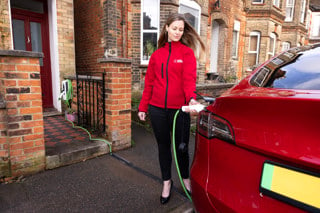The Department for Transport (DfT) needs to develop a comprehensive strategy to maximise the benefits of new motoring technologies, such as telematics and driverless cars, MPs have warned.
The Transport Committee is calling on the DfT to address a range of issues in its report Motoring of the Future, which is published today (March 6)
Louise Ellman MP, chair of Transport Committee, said: “Motoring is being transformed by new materials, new fuels and information technology.
“The Government must do more to ensure that people and businesses in the UK benefit from this once-in-a-lifetime opportunity.”
It is urging the DfT to:
- Clarify how the introduction of self-driving cars will affect the liabilities of drivers, manufacturers and insurers.
- Positively engage in setting European and international standards that will help UK manufacturers develop products suitable for export.
- Ask the Information Commissioner to update guidelines on the collection, access and use of vehicle data.
- Use data on driver behaviour held by the insurance industry and others to inform policy making and improve road safety.
Ellman added: "The Government must do more to prepare for a transition period where manual, semi-autonomous and driverless vehicles will share UK roads.
“Transport ministers must explain how different types of vehicles will be certified and tested, how drivers will be trained and how driving standards will be updated, monitored and enforced."
BVRLA chief executive Gerry Keaney gave evidence to Transport Committee in October, 2014, and many of the association’s recommendations have been included in the report.
“We are in the early stages of a motoring revolution, with technology set to transform the way we use road transport,” said Keaney.
“The UK has some of the world’s brightest automotive talent, but we urgently need some joined up Government thinking if this country is to use this potential.
“As the buyers of over half of all the cars, vans and trucks sold in the UK every year, the fleet market is a crucial early adopter of autonomous and connected vehicle technology.
“BVRLA members are already using telematics, big data and car sharing technology to transform the way people use and access vehicles. With the right Government support, the potential to reduce harmful emissions, road casualties and congestion is huge.”
IAM director of policy Neil Greig added: "The committee recognised our concerns about data protection. Computerised vehicles will generate information on an epic scale.
“In the not so distant future a hacker could do more damage than a drunk driver. Getting system security right must be a top priority.”
Edmund King, AA president, concluded: “We really need a safe vision for the future whereby all vehicles and all road users, can coexist in harmony. This vision will entail Government, manufacturers, insurers and indeed drivers agreeing the way ahead.
“We know that the majority of drivers still enjoy driving but these new technologies offer the prospect of cleaner, safer and cheaper motoring.
“Better electronic communication, allowing cars to talk to those that can assist them, means that drivers in distress on the roadside stay connected to and not cut-off from help.
“However, government agencies and companies that facilitate these new technologies must always keep in mind: what works for the boffins may be baffling for the motorists.
“What may be a quantum leap in auto sophistication may be a leap of faith too far for the average driver.”
For more on the Transport Committee’s report, see the next edition of Fleet News.





















Login to comment
Comments
No comments have been made yet.